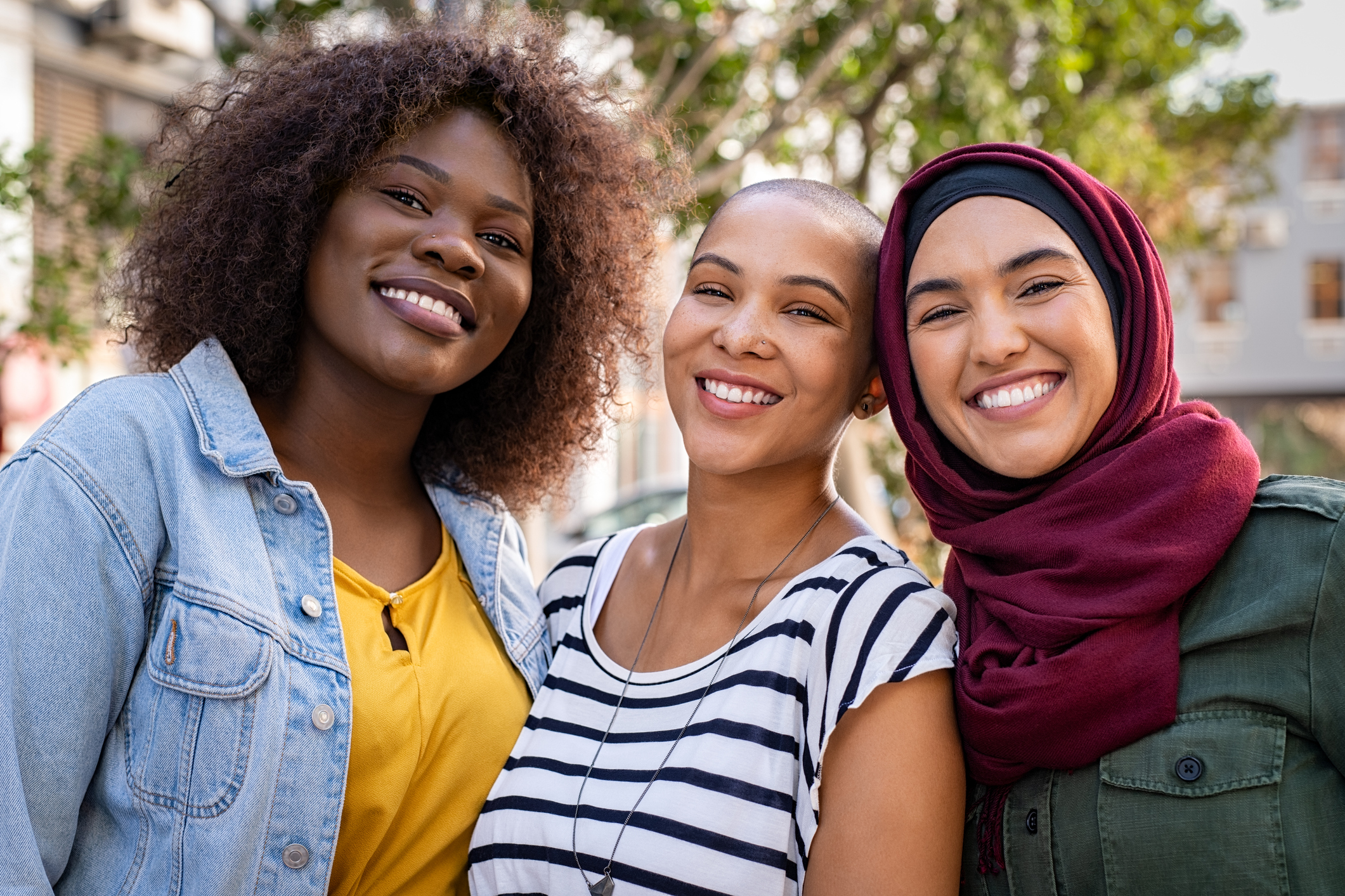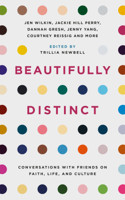
The following is an extract by Natasha Sistrunk Robinson as part of her contribution to the new book Beautifully Distinct: Conversations with Friends on Faith, Life, and Culture.
I often compare racism to pollution. It is created by humans, it negatively impacts every one of us, and because it has been around for so long, we have become comfortable with its existence: so comfortable that some would deny it is even here.
In their classic book, Divided by Faith: Evangelical Religion and the Problem of Race in America, Christian sociologists Michael O. Emerson and Christian Smith describe the American nation as a “racialized society.” They write:
“A racialized society is a society wherein race matters profoundly for differences in life experiences, life opportunities, and social relationships. A racialized society can also be said to be ‘a society that allocates differential economic, political, social, and even psychological rewards to groups along racial lines; lines that are socially constructed.’”

Inspires women to engage with life and culture in a God-honoring way.
God has given us ethnic and cultural differences, which are not for the purposes of division, yet that is the exact purpose of the social construct of race. Race is a defining part of our society—affecting basic things such as where we live, as well as educational achievement and financial prospects. The racializing of America’s society has a long and often neglected history. The idea of race as division was the seed planted in America’s soil which birthed the trees that bore the fruit of racism. This fruit is tilled, fertilized, and replanted throughout generations, until we look up one day to realize that there is a whole forest around us with tall trees entrapping us all, making it hard to see the light.
We must look at ourselves and seek the truth about how our lack of knowledge, history, or understanding, and our silence, anger, or apathy prevent the message of Jesus Christ from going forth to all people.
In 2012, CNN released a report which stated that children are learning racist thought processes in their homes—and then expressing them—when they are as young as six years old. They start becoming aware of racialized attitudes as young as five. The report stated that “making friends with kids of other races is hard, and only gets harder as they grow up.”
The problem does not start with children. The Public Religion Research Institute has reported that the majority of white Americans have very few non-white friends, and are very unlikely to have intimate relationships with non- white people—the type of relationships in which they have important conversations or consider the person trustworthy. If their parents’ friends are all of one skin color, it should not be surprising that children find engaging with individuals from other people groups hard.
We all have an implicit bias: that is, our thoughts and actions are based on assumptions that we have been trained in since childhood and that we are not even aware of making. Because they are subconscious, these assumptions are the easi- est to adopt unwittingly, and the hardest to identify or correct once they have taken root in our hearts. When unchallenged, such implicit biases have a profound effect not only on our own relationships but on those of our kids, and therefore on the society at large and on our collective future.
I was struck by the perspective shared by Patricia Raybon in her foreword to Amy Julia Becker’s book White Picket Fences. Mrs. Raybon is an African American woman and a wise Christian writer. She is a product of the civil-rights movement and the Jim Crow era. She is also a mother of black children. All this came into the conversations she had with Amy Julia—a white woman—about race and privilege. Mrs. Raybon wrote:
“She and I went back and forth on when to tell children about hard things such as racism. I argued that the question itself is a luxury allotted to children who don’t have to worry about this particular terror— while children of color, by default, are forced to see from their earliest months that they are targets, often, of many kinds of racism.
Thus, all children, I argued, should see that racial terror exists—just as they’re taught that a stove is hot, a speeding car can kill them, and sadly so can other mayhem. Racism kills, too, and all children, no matter how young, should know about it.”
As a black mother, daughter, sister, wife, and friend, I know this trauma that does not escape us. But not everyone knows it. That is why talking about these things, however painful, is vitally important for unity and for the preservation of life.
As Christians, we must awaken ourselves to how God calls us to live for him in this world that is so drastically broken. We all need to consider how to prevent ourselves from inadvertently picking up those “racialized” seeds and planting them again.
Many people of color are tired of speaking up about race. Others are afraid to do so. Some people in our society are confused, and others frustrated; some simply feel they don’t know what to say. The temptation for all of us is to remain silent.
But if we are to challenge a racialized society, we need to speak. We all need to be honest about the ways in which racism impacts and affects us. We need to confess and challenge the implicit bias that directs our actions and our words. We must look at ourselves and seek the truth about how our lack of knowledge, history, or understanding, and our silence, anger, or apathy prevent the message of Jesus Christ from going forth to all people.
There is an old saying which encourages us to have “a Bible in one hand and a newspaper in the other.” Too often we have a newspaper in one hand and a Twitter feed in the other.
The media can shape our responses to racism and the solutions we endorse. But as Christians we need to respond to media stories concerning racism in a biblical way.
How do we allow the Bible to shape our thinking on this issue? It is important that we pay attention to the voices that are present in each Bible passage, asking who is speaking and from what perspective. This will help us to understand any injustice or marginalization that is taking place as the Bible describes sinful people and their attitudes. An astute Bible student often asks, “What does the word say?” but the fact that Jesus came to earth also enables us to consider, “What does the Word do?” How does Jesus respond to the vulnerable—including the poor, orphans, women, children, strang- ers, those in prison, and unbelievers? What is his attitude and why? Prayerfully asking these questions under the inspiration and guidance of the Holy Spirit will, I hope, lead us to greater compassion, wisdom, and understanding.
This, in turn, will help us respond to news stories with an informed, biblical viewpoint, and can also help us become wise, active advocates locally, nationally, and beyond. Rather than just responding to what’s trending, we can consistently show a genuine pursuit of racial justice and a love for our neighbors. To do this, we can seek out, follow, learn from, and actively support the churches and organizations that are doing important work both in our local communities and nationally. It is also important that we read and listen to Christian witness- es who are people of color that are committed to the Bible, the good news of the gospel message, and justice work.
In this way we can all become advocates against racism. We can prayerfully shape our world so that it looks like the one we are ultimately looking forward to: a world in which people from every nation, tribe, people, and language will worship together before the throne of God, united eternally.
---
How should we listen to, and think in a gospel way about, the ordinary things we come across in modern life? Things we watch, read, eat, and do. There are so many voices saying so many different things that the temptations are to either disengage completely, or find ourselves being influenced more and more by the world.
In Beautifully Distinct, godly, clear-thinking women talk about a range of areas of life and culture. They help us to be thoughtful about films, books, and the media; set out biblical principles for approaching topics such as body image and racism; and encourage us to shape the world around us for Christ—becoming beautifully distinct.